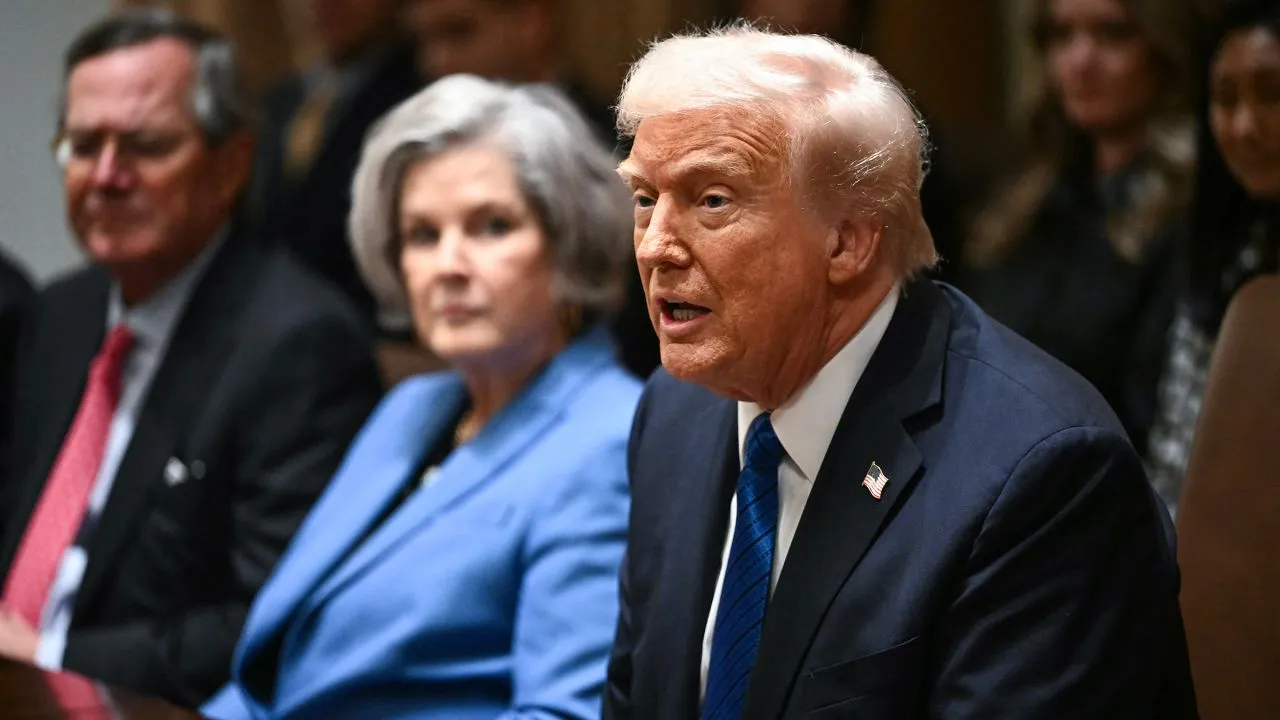
Jennifer Piggott, a self-identified "MAGA junkie," has made headlines after publicly expressing regret for voting for Donald Trump in the 2020 presidential election. Piggott, who was employed at the Treasury Department’s Bureau of Fiscal Service, was one of 125 probationary employees dismissed in February 2025.
Despite receiving the highest rating during her last performance review, Piggott, along with many other employees, found herself among the thousands of federal workers who were let go as part of a cost-cutting initiative under President Trump’s Department of Government Efficiency (DOGE).
This mass firing, which targeted employees still within their one-year probationary period, has sparked widespread backlash. Many of the workers dismissed were Trump supporters, including Piggott, who was particularly vocal about her previous support for the Republican president.
Her experience, and the experiences of others like her, have raised serious questions about the impact of these firings on the Republican Party’s base and the consequences for the upcoming 2026 midterm elections.
Piggott shared her story with CNN, explaining how the sudden loss of her job made her question her previous decision to vote for Trump. “Yes, I do regret it,” she said. “To cut the knees off the working-class Americans just doesn’t make sense to me. I expected more from President Donald Trump.”
Piggott went on to describe the emotional toll of the firing, saying she felt scared and embarrassed after losing her job. "I cried," she admitted. "It's scary, you know? It's a really scary thing and I was embarrassed."
As if the professional setback wasn’t enough, Piggott also mentioned receiving death threats and having her home egged after speaking out publicly. The emotional distress, combined with her political disillusionment, made her reconsider her previous support for the president.
In a poignant display of her shift in perspective, Piggott showed CNN the Trump campaign flag she had previously displayed outside her home. After the firing, she took it down, signaling her break from the president she once supported.
Her regret, however, is not an isolated incident. A second former employee, who wished to remain anonymous due to safety concerns, shared similar sentiments, noting that the handling of the firings had caused her to question her vote for Trump as well.
This growing disillusionment is not just an individual grievance but a broader political issue that could have significant repercussions. As part of the broader efforts to cut government spending, Trump’s administration set up DOGE, led by his close ally Elon Musk.

The department’s goal was to streamline government operations by firing federal employees, particularly those who were deemed non-essential or underperforming. However, the firings have disproportionately affected Trump’s own supporters, as many of those dismissed were employees who had backed his 2020 election campaign.
This reality raises the possibility that the firings could alienate key segments of Trump’s voter base, potentially hurting the Republican Party in the 2026 midterm elections and beyond.
The decision to fire these employees has sparked outrage not only among those directly affected but also among voters who feel that their support for Trump was repaid with betrayal.
The fact that many of the fired employees were loyal to the president during his first term only amplifies the sense of betrayal that is now felt by these former supporters. This issue, combined with the upcoming election, has the potential to further fracture the Republican base.
On March 14, 2025, U.S. District Judge William Alsup issued a preliminary injunction requiring the Trump administration to rehire more than 17,000 probationary employees that had been dismissed. The ruling was a temporary but significant victory for those who had been let go.
However, the political and legal implications of this decision remain unclear. The administration has sought to challenge the ruling, but the U.S. Circuit Court of Appeals upheld Alsup’s decision, further complicating the situation for Trump and his allies.
The case could eventually make its way to the U.S. Supreme Court, where the outcome will have far-reaching consequences.
White House press secretary Karoline Leavitt responded to Alsup’s ruling, calling it an overreach by the judiciary. "A single judge is attempting to unconstitutionally seize the power of hiring and firing from the Executive Branch," Leavitt said.
She emphasized that the president has the constitutional authority to manage the executive branch and criticized district court judges for attempting to impede the president’s agenda. The administration’s position has been that the firings were necessary to improve government efficiency and reduce wasteful spending.
However, the legal battle and political fallout from the firings are far from over. The firing of probationary employees and the subsequent backlash are likely to play a significant role in the 2026 midterm elections.

While Trump and his allies continue to defend the cuts as a necessary part of government reform, many of those affected, including former Trump supporters like Piggott, now feel that their loyalty has been repaid with unjustified termination and political abandonment.
The anger and frustration of these former Trump supporters should not be underestimated. While the Trump administration has long prided itself on its appeal to working-class Americans, many of these same individuals are now questioning their continued allegiance to a party that they feel has left them behind.
For some, the mass firings are a direct contradiction to the promises made during Trump’s first campaign, which promised to put America’s workers first. As many former employees begin to publicly regret their support for Trump, it becomes clear that this issue could have serious political consequences for the Republican Party.
The impact of these firings also extends beyond the immediate political consequences. Piggott’s experience, along with that of other former employees, highlights the emotional and psychological toll that political decisions can have on individuals.
The personal and professional damage caused by these firings has made many of those affected feel that their voices and concerns no longer matter, further alienating them from the political system they once believed in.
The growing alienation felt by former Trump supporters underscores the need for political leaders to take responsibility for the decisions they make and the impact those decisions have on their constituents. In this case, the decision to fire thousands of federal employees, many of whom were loyal to Trump, has created a sense of betrayal and distrust that could have lasting consequences for the Republican Party.

For some voters, like Piggott, the personal cost of supporting Trump has proven to be too great, and their disillusionment could carry over into future elections.
As the legal battle continues and the 2026 elections approach, it remains to be seen whether the Republican Party will be able to recover from this self-inflicted wound. The outcome of the case, along with the broader political fallout, will play a key role in determining the future of the party and the political landscape in the years to come.



